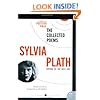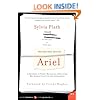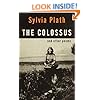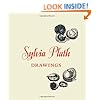



The Unabridged Journals of Sylvia Plath Paperback – October 17, 2000

Don't have a Kindle? Get your Kindle here, or download a FREE Kindle Reading App.
Step right into Neil Patrick Harris's shoes in an exciting, interactive autobiography that places the reader squarely in the driver's seat. Learn more
Product Details
Would you like to update product info or give feedback on images?.
|
Editorial Reviews
Amazon.com Review
The journals show the breathless adolescent obsessed with her burgeoning sexuality, the serious university student competing for the highest grades while engaging in the human merry-go-round of 1950s dating, the graduate year spent at Cambridge University where Plath encountered Ted Hughes. Her version of their relationship (dating is definitely not the appropriate term) is a necessary, and deeply painful, complement to Birthday Letters. On March 10, 1956, Plath writes:
Please let him come, and give me the resilience & guts to make him respect me, be interested, and not to throw myself at him with loudness or hysterical yelling; calmly, gently, easy baby easy. He is probably strutting the backs among crocuses now with seven Scandinavian mistresses. And I sit, spiderlike, waiting, here, home; Penelope weaving webs of Webster, turning spindles of Tourneur. Oh, he is here; my black marauder; oh hungry hungry. I am so hungry for a big smashing creative burgeoning burdened love: I am here; I wait; and he plays on the banks of the river Cam like a casual faun.Plath's documentation of the two years the couple spent in the U.S. teaching and writing explicitly highlights the dilemma of the late-1950s woman--still swaddled in expectations of domesticity, yet attempting to forge her own independent professional and personal life. This period also reveals in detail the therapy sessions in which Plath lets loose her antipathy for her mother and her grief at her father's death when she was 8--a contrast to the bright, all-American persona she presented to her mother in the correspondence that was published as Letters Home. The journals also feature some notable omissions. Plath understandably skirted over her breakdown and attempted suicide during the summer of 1953, though she was to anatomize the events minutely in her novel The Bell Jar.
Fragments of diaries exist after 1959, which saw the couple's return to England and rural retreat in Devon, the birth of their two children, and their separation in late 1962. An extended piece on the illness and death of an elderly neighbor during this period is particularly affecting and was later turned into the poem "Berck-Plage." Much has been made of the "lost diaries" that Plath kept until her suicide--one simply appears to have vanished, the other Hughes burned after her death. It would seem rapacious to wish for more details of her despair in her final days, however. It is crystallized in the poems that became Ariel, and this is what the voice of her journals ultimately send the reader back to. Sylvia Plath's life has for too long been obfuscated by anecdote, distorting her major contribution to 20th-century literature. As she wrote in "Kindness": "The blood jet is poetry. There is no stopping it." --Catherine Taylor
From Publishers Weekly
Copyright 2000 Reed Business Information, Inc.
More About the Author
In 1963, Plath's semi-autobiographic novel The Bell Jar was published under the pseudonym "Victoria Lucas"; it was reissued in 1966 under her own name. A complete and uncut facsimile edition of Ariel was published in 2004 with her original selection and arrangement of poems. She was married to the poet Ted Hughes, with whom she had a daughter, Frieda, and a son, Nicholas. She died in London in 1963.
Customer Reviews
Most Helpful Customer Reviews
I have just finished reading the 670-some pages of her unabridged journals, published in the United States in 2000 for the first time. I had read her abridged journals during college, and I remember nothing like the impact that comes here. And now that I am done, I feel kind of grieved in a new way for the loss of her, a fresh hurt.
The book is divided into sections based on her notebooks or journals that include Plath's adult journals from 1950 to 1962, and is an exact transcription of her writing, including errors and notes on edits she made or that her husband, the late British Poet Laureate Ted Hughes may have made, in the original manuscripts. The unabridged version comprises sections from the following years: July 1950 to July 1953; November 1955 to April 1956; July 1956; July 1956 to August 1956; January 1957 to March 1957; July 1957 to August 1957; August 1957 to October 1958; and December 1958 to November 1959. The 15 appendices contain journal fragments and entries starting from October 1951 to 1962.Read more ›
Hughes's death made possible the restoration of many of the lost passages concerning him--and Plath's other portraits of friends and her mother--for the first time. Clearly she emerges as a ruthless observer of the human condition, and a fantastic wordsmith: her description of something as mundane and disgusting as picking her nose becomes something of a revelation through her linguistic gifts. She also emerges as something of a monster: although it does much to excuse her spiteful caricatures of her acquaintances--and her almost Euripidean fury towards her poor mother--by remembering that the journals served as cathartic self-therapy, still the venom within them remains deeply disturbing.
The greatest handicap of this edition is its strange chronological sequencing: Kukil often positions appendices in very odd places, disrupting the narrative of the artist's life.
These unabridged journals, edited by Karen V. Kukil, are a vast improvement over the perniciously edited version published in the 1980s (for too long the only one available), whose preparation was supervised by Plath's ex-husband the poet laureate of Britain, Ted Hughes.
Hughes has been cast as the villain of the piece vis-a-vis Plath's life, having been blamed (rather wrongfully) for her suicide at age thirty, and having been accused (more rightfully) of effectively censoring Plath's work, both poem and prose, following her death, whether by legal process, blue pencil, spontaneous rearrangement, or outright destruction of material.
Comparing the Hughes edition to the Kukil edition JOURNALS is an eye-opening education. Hughes slashed vast amounts of material from Plath's daily record, and bowdlerized much of the rest. He extensively editorialized the text. The Sylvia Plath of Hughes' creation strikes the reader as remote and too measured---as if she was writing even her journals for an audience.
The unexpurgated Sylvia Plath who appears in the Kukil JOURNALS is a far more vulnerable, wistful, soft, tough, gritty, obscene and sexualized person---in short a real woman.
Unlike Hughes, Kukil avoided editorializing the text, but perhaps too zealously, thus losing sight of something important. Unless Plath speaks to specific issues, the reader is left unanchored in the 1950s, an era of vast changes whose roil and turmoil unquestionably had subtle (if not always journalistically noted) effects upon Plath.Read more ›
The Journals of Sylvia Plath as we all know are incomplete, they were edited (sanitized) by her husband Ted Hughes. No doubt whatsoever that the material he 'lost' was detrimental to him. The only thing he allows in the book is her account of his dalliance with a student, after which she begins to see him in a different light. It leaves you at the end of the book feeling very sorry for this woman, and wanting to find out more. (Which one can't help feeling was a marketing ploy by Hughes, who sold the rights to her book the Bell Jar to the Americans after her death in spite of her mother's objections, so that he could raise the money to buy a third home).
Sylvia Plath was brilliant, sexy, vivacious and sociable. She was also completely obsessed with analyzing the working of her mind, her emotions and sensitivities. She was narcissistic, selfish and critical to the point of meanness. The rawness of her emotions is hard to take sometimes. What a normal person would consider to be a rough sea of life and cope accordingly, she turns into a force 10 hurricane. One cannot help feeling that the journals were written to be published, that the author KNEW someday they would be discovered and read by everyone. The writing is beautiful. The very first entry July 1950 is a delight:-
"I may never be happy, but tonight I am content. Nothing more than an empty house, the warm hazy weariness from a day spent setting strawberry runners in the sun, a glass of cool sweet milk, and a shallow dish of blueberries bathed in cream......"
Once started, it is hard to put the book down.
A word now about the editing.Read more ›











